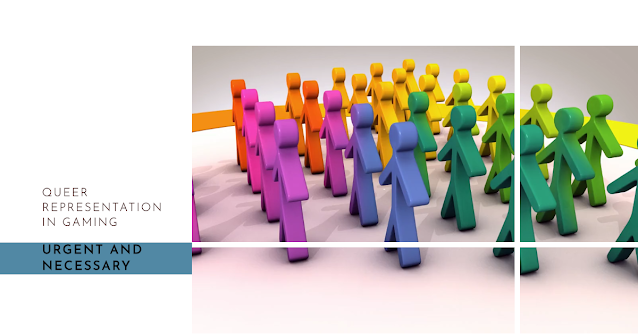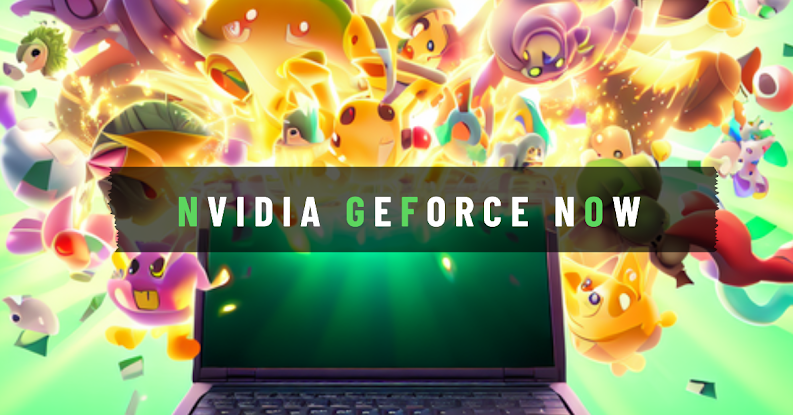Leveling Up: The Quest for Queer Representation in Video Games
Introduction
A New Level of Inclusivity
As the gaming industry levels up, the conversation surrounding representation and inclusivity is evolving. The demand for diverse characters and storylines, particularly for the LGBTQ+ community, has surged in recent years. While progress has been made, the quest for queer representation in video games is far from over.
A History of Exclusion
The Game Industry's Relationship with the LGBTQ+ Community
Historically, the gaming industry's relationship with the LGBTQ+ community has been marked by tension and exclusion. Discrimination, harassment, and a lack of representation have been prevalent issues. The portrayal of queer characters in games has often been problematic, limited, or non-existent. However, the industry is slowly recognizing the importance of diverse representation, not just for inclusivity but for the betterment of the industry itself.
The Challenge of Representation
More Than Just a Game
One of the most significant challenges facing the queer community in gaming is the lack of representation. While there have been notable examples of queer characters in games, such as Birdo in the Super Mario series or the ability to pursue same-sex relationships in games like The Sims and Dragon Age, these examples are few and far between. For many queer gamers, the lack of representation can be disheartening, as their experiences and identities are not acknowledged or validated in the games they love.
Stereotypes and Tokens
The Misrepresentation of Queer Characters
When queer characters are included in games, they are often relegated to stereotypical or tokenistic roles. These characters are frequently defined solely by their sexuality or gender identity rather than being allowed to exist as fully realized individuals with their own personalities, desires, and storylines. This limited portrayal of queer characters perpetuates harmful stereotypes and fails to capture the complexity and diversity of queer experiences.
The Power of Representation
Why It Matters
Representation in gaming is more than just a token gesture. It can be incredibly validating for queer gamers who may feel ostracized or invisible within the larger gaming community. Seeing characters who share their experiences and identities can be empowering and affirming, helping to create a sense of belonging and community. Moreover, representation can educate and raise awareness about the queer community, helping break down harmful stereotypes and foster empathy and understanding.
Beyond Representation
The Harsh Reality of Harassment
The lack of representation in gaming is not the only issue facing the queer community. Queer gamers also face harassment, discrimination, and exclusion within gaming spaces, both online and offline. A 2021 study by GLAAD found that 81% of LGBTQ+ gamers had experienced some form of harassment while playing games, with the majority of that harassment occurring online during multiplayer games. This intolerance and hostility are unacceptable and highlight the need for more inclusive and welcoming gaming communities.
Demanding Change
The Role of Game Developers and Publishers
To address these issues and promote more diverse queer representation in gaming, we must demand more from game developers and publishers. It's time for the industry to step up and prioritize representation and inclusivity in their games, both in terms of character representation and the experiences of queer gamers. This means creating more diverse characters who can exist beyond their sexuality or gender identity and fostering safe and welcoming spaces for all players.
The Power of the Player
How Gamers Can Make a Difference
As gamers, we can also take action by supporting games that prioritize diverse representation and calling out games that fall short. Using our voices and purchasing power, we can send a message to the industry that representation matters and that we won't settle for anything less. But why stop at just queer characters? As gamers and creators, we can push for more representation across the entire spectrum of diversity. We
The Spectrum of Diversity
Beyond Queer Characters
The lack of diverse representation in gaming extends beyond just queer characters. Women, people of color, and individuals with disabilities are also vastly underrepresented in games. According to a 2021 study by the International Game Developers Association, only 27% of game developers identify as female or non-binary, and only 21% identify as people of color. This lack of diversity in the industry can result in limited perspectives and a narrow range of experiences being represented in games.
The Dawn of Change
Games Breaking the Mold
Despite the challenges, there are game developers and publishers who are taking strides towards more inclusive and diverse representation in their games. Games like The Last of Us Part II, Life is Strange, and Tell Me Why feature queer protagonists and storylines that have been praised for their nuanced and authentic portrayals. Indie games such as Coffee Talk and Boyfriend Dungeon have also been celebrated for their inclusive and diverse cast of characters. These games are setting the bar high for future games, showing that it is possible to create engaging, diverse, and inclusive gaming experiences.
The Power of the Consumer
Driving Change in the Industry
As consumers, we have the power to support these games and send a message to the industry that representation matters. We can also hold developers and publishers accountable for their lack of diversity and demand change. We can push the industry toward a more inclusive and welcoming future using our voices and purchasing power.
Conclusion
The Future of Gaming is Inclusive
The need for more diverse queer characters and storylines in video games is urgent and undeniable. As gamers and creators, we are responsible for pushing for more representation, inclusivity, and empowerment. By doing so, we can create a more vibrant and dynamic gaming culture that celebrates and reflects the diversity of our world. We can empower marginalized communities and promote understanding and empathy across all boundaries. So let's create a gaming world that genuinely represents and values everyone. Let's show the gaming industry that inclusivity isn't a game; it's a necessity. Join the movement for more diverse and authentic representation in gaming, and let's level up together!




Comments
Post a Comment
Connect with House Anomaly, we are always open to collaboration or critiques on how we can do better.